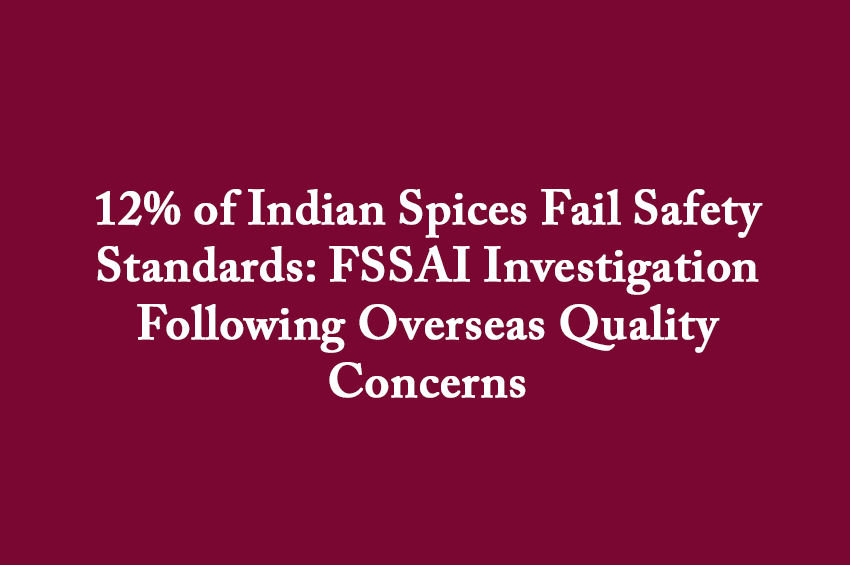Winning Bizness Desk
Mumbai. A recent investigation by the Food Safety and Standards Authority of India (FSSAI) has revealed that 12% of spices sold in the country do not meet the required quality and safety standards. The findings come after scrutiny over the quality of popular Indian spice brands, MDH and Everest, following reports of bans in Singapore and Hong Kong earlier this year. Between May and July 2024, the FSSAI conducted a comprehensive examination of 4,054 spice samples across India. The results showed that 474 samples, representing about 12% of those tested, were deemed unfit for consumption according to FSSAI standards. The investigation was prompted by concerns raised in international markets, particularly in Singapore and Hong Kong, where certain Indian spices were reportedly banned due to safety issues.
No Brand-Specific Details Provided by FSSAI
While the FSSAI did not disclose specific brand names in their report, they confirmed that action is being taken against companies that failed to meet safety standards. Despite the lack of brand-specific information, MDH and Everest have responded to the investigation, assuring consumers that their products are safe and meet all necessary regulatory requirements. Notably, India’s spice industry is a significant contributor to the economy, both domestically and internationally. In 2023-24, the country exported spices worth ₹37,425 crore, with brands like MDH and Everest being major players in both local and global markets. According to Zion Market Research, India’s domestic spice market was valued at over ₹87,608 crore in 2022.
Concerns Over Pesticides in Indian Spices
The controversy surrounding Indian spices intensified after the Hong Kong and Singapore governments raised concerns over high levels of the pesticide ethylene oxide in certain spice products. This carcinogenic chemical was reportedly found in MDH’s Madras Curry Powder, Sambar Masala Powder, and Curry Powder, as well as Everest’s Fish Curry Masala. The presence of such chemicals poses significant health risks, including cancer. Pesticides like ethylene oxide are used by spice manufacturers to protect products from bacterial and fungal contamination, which can significantly reduce their shelf life. Despite this, the use of such chemicals has drawn criticism due to their potential health risks, leading to stricter regulations and increased scrutiny.
Indian Government’s Response to Overseas Concerns
In response to the reported bans, the Indian government clarified on May 21 that there is no blanket ban on Indian spices in Singapore and Hong Kong. Government sources emphasized that only specific batches from certain brands were rejected due to safety concerns. Nevertheless, the FSSAI has been instructed to conduct rigorous testing of all spices in the Indian market to ensure compliance with safety standards. This ongoing investigation highlights the importance of maintaining stringent quality controls in the food industry, particularly for products with a global reach like Indian spices.


